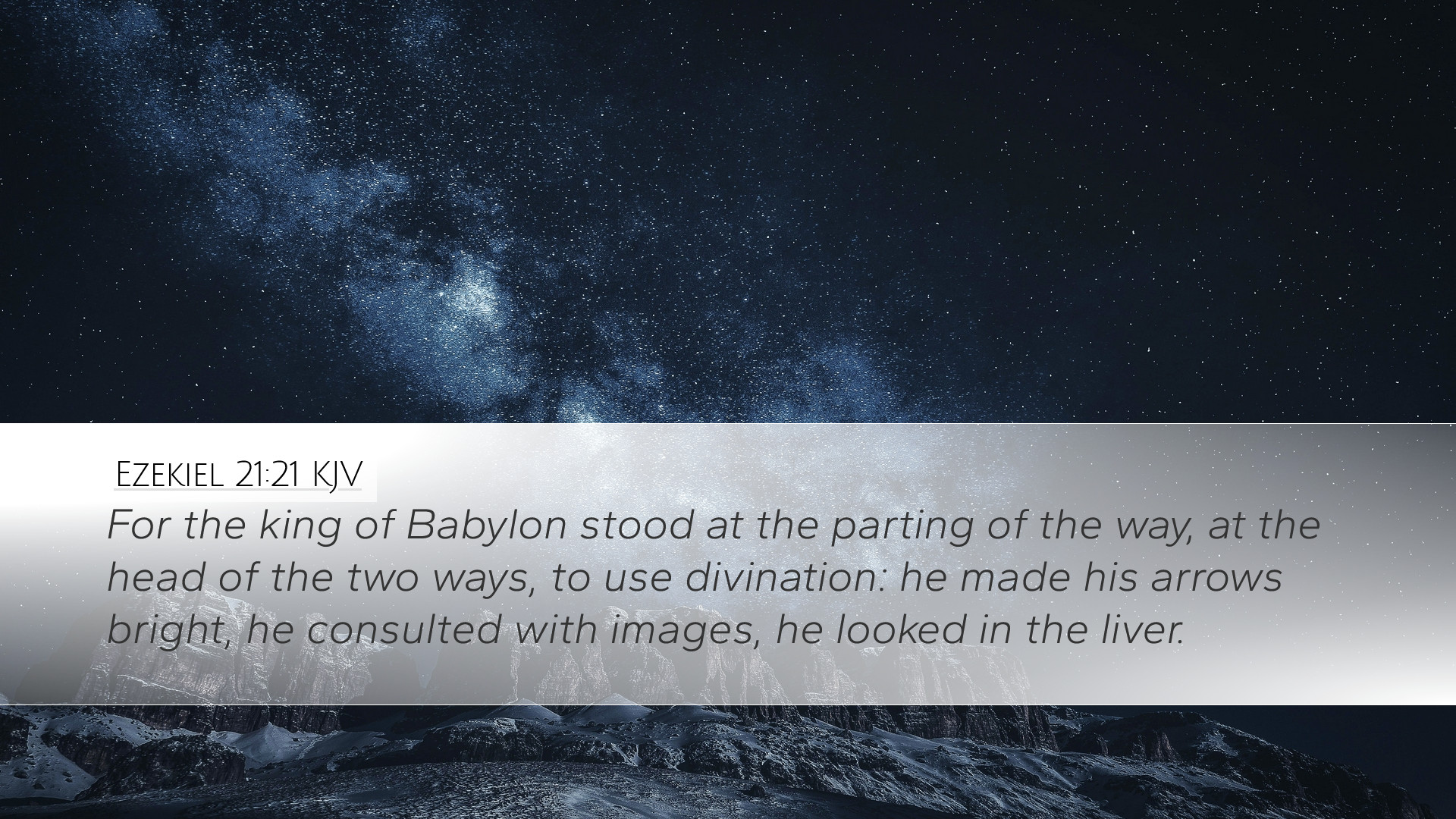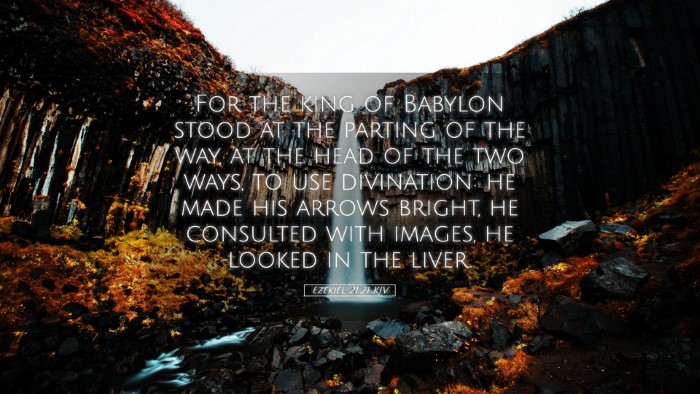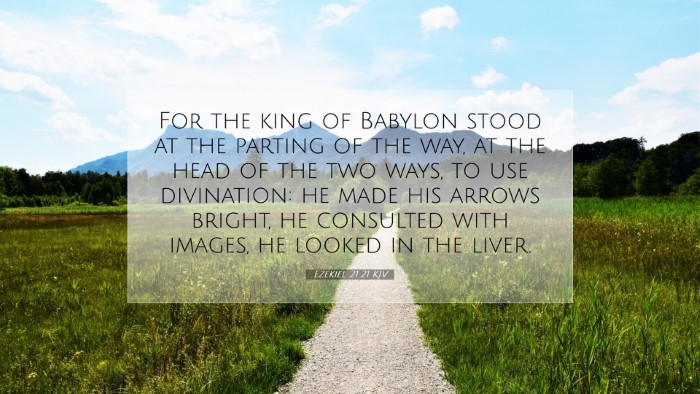Ezekiel 21:21 - Commentary Summary
Ezekiel 21:21 states: "For the king of Babylon stood at the parting of the way, at the head of the two ways, to use divination: he made his arrows bright, he consulted with images, he looked in the liver." This verse comes at a pivotal moment in the prophetic ministry of Ezekiel, illustrating the way in which God sovereignly directed the actions of the Babylonian king, Nebuchadnezzar, as he sought divine guidance before engaging in war.
Contextual Background
The chapter in which this verse is found speaks to the impending judgment upon Jerusalem and the culmination of God’s pronouncements through the prophet Ezekiel. The broader context includes God’s sovereign control over nations and His use of Babylon as an instrument of His judgment against His people for their disobedience.
Divination Practices
Ezekiel describes the Babylonian king engaging in divination, a common practice in ancient near-eastern cultures, wherein leaders sought the guidance of the gods regarding fortunes in battle. The king’s use of arrows and his looking into the liver were methods employed to discern God's will or to learn the outcome of forthcoming events.
Additions from Commentary
-
Matthew Henry: Henry emphasizes that Nebuchadnezzar's reliance on divination reflects the folly of the nations in trusting superstitions over the sovereignty of the true God. He notes how God is the ultimate guide and that all divine decisions belong to Him alone.
-
Albert Barnes: Barnes points out that the “parting of the way” signifies a critical moment in which significant decisions affect the future. He suggests this metaphorically represents the moral choices leading to either judgment or mercy, drawing parallels to the choices Christians must make today.
-
Adam Clarke: Clarke elaborates on the imagery of the king making his arrows bright as a preparation for battle and portrays it as a symbol of readiness and the seriousness of the moment. He asserts that this act of consulting images highlights the distinction between pagan rituals and the worship of Yahweh.
Theological Implications
This passage should challenge Christian leaders and theologians regarding the source of their wisdom and decision-making processes. The juxtaposition of the king’s deliberate seeking of knowledge from false gods reinforces the idea that true guidance and understanding are derived from faith in God.
Application for Ministry
-
Leadership Decisions: Modern church leaders are reminded to seek divine guidance through prayer and Scripture rather than relying on worldly wisdom or secular ideologies.
-
Trust in Sovereignty: The recognition that God can orchestrate events, even using pagan rulers for His purposes, fosters a sense of peace amid uncertainties, encouraging trust in God's providence.
-
Understanding Judgment: The prophetic warnings focus on the consequences of sin and apostasy, serving as vital reminders for pastoral preaching to urge repentance and righteousness within congregations.
Conclusion
Ezekiel 21:21 provides a powerful depiction of the sovereignty of God and the futility of relying on anything other than Him for guidance. By integrating insights from historical commentaries, we gain a deeper understanding of the text's significance, enriching our theological reflection and providing practical applications for faith leaders today.


